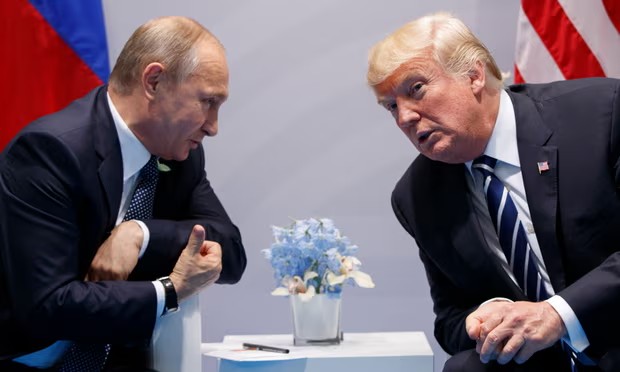The ongoing war in Ukraine, sparked by Russia’s invasion in February 2022, has drawn global attention as US President Donald Trump pushes for a ceasefire. Recent developments have centred on Trump’s efforts to engage directly with Russian President Vladimir Putin to broker peace, following stalled talks between Ukrainian and Russian delegations in Istanbul. These efforts come amid heightened tensions, with both sides struggling to find common ground.
On 17 May 2025, Trump announced he would speak with Putin on Monday to discuss halting the conflict, which he described as a “bloodbath” claiming over 5,000 lives weekly. The call, scheduled for 10 a.m., would also cover trade issues. Trump’s urgency stems from his belief that no significant progress will occur without his personal involvement, a stance echoed by US Secretary of State Marco Rubio, who called the talks a “logjam” breakable only by a Trump-Putin meeting. Trump also plans to speak with Ukrainian President Volodymyr Zelensky and NATO leaders, aiming to align diplomatic efforts.
The Istanbul talks, held on 16 May 2025, marked the first direct negotiations between Russia and Ukraine in over three years. Facilitated by Turkey, the discussions yielded a 1,000-prisoner swap but no ceasefire agreement. Ukraine, backed by Zelensky, demanded an immediate, unconditional 30-day truce, while Russia’s delegation, led by Putin’s aide Vladimir Medinsky, insisted Kyiv withdraw from four eastern regions annexed by Moscow in 2022. Ukrainian officials dismissed these demands as “non-starters,” highlighting the vast gap between the two sides. Putin’s absence from the talks, despite Zelensky’s challenge for a face-to-face meeting, further dimmed hopes for a breakthrough.
Trump’s approach has stirred controversy. European leaders, hoping for tougher sanctions on Moscow, fear a Trump-Putin summit could sideline Ukraine’s interests. Kyiv officials worry about a potential “stitch-up” deal, given Trump’s emphasis on direct talks with Putin, excluding Zelensky. Russia’s continued aggression, including a drone strike on a civilian bus in north-eastern Ukraine that killed nine people hours after the Istanbul talks, underscores the challenges of securing peace. Kremlin spokesperson Dmitry Peskov confirmed preparations for the Trump-Putin call but cautioned that a face-to-face meeting would require extensive planning.
Trump’s rhetoric reflects frustration with both leaders. He has criticised Zelensky for rejecting earlier mediation efforts and suggested Putin is “tired” of the war, citing Russia’s battlefield setbacks. Yet, Putin’s refusal to attend the Istanbul talks and Russia’s insistence on territorial concessions suggest Moscow remains unyielding. Analysts, including Oleg Ignatov from the International Crisis Group, doubt an immediate resolution, noting Russia’s strategic interest in prolonging the conflict to leverage negotiations.
The war’s toll—human, economic, and geopolitical—continues to mount. Ukraine’s call for a ceasefire aligns with European allies’ pressure for de-escalation, but Russia’s demands for territorial control complicate diplomacy. Trump’s intervention, while bold, risks alienating allies if it prioritises bilateral talks with Russia over multilateral efforts. As the Monday call approaches, the world watches to see if Trump’s gamble can shift the trajectory of a war that has defied resolution for over three years.



Recent Comments